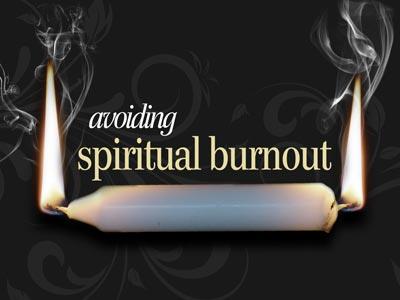-
Tears A Sign Of Strength Series
Contributed by Scott Chambers on Nov 28, 2017 (message contributor)
Summary: A series that looks through the book of Lamentations.
A well intentioned father told his son, “Big boys don’t cry.” Our culture throughout the years has reinforced the idea that it is not manly to cry. The common belief seems to be that tears are a sign of weakness or worse yet a sign of a lack of faith in God. As a result throughout the years people have squelched such expressions of sorrow and hurt both themselves and others. So the big question is, “How does God view the shedding of tears?” I believe the answer is He views them in the exact opposite way than we do. In Psalm 56:8 we learn that He takes note of our tears and remembers them. John records in his Gospel record an account of Jesus weeping bitterly beside Lazarus’ graveside. To those who witnessed this event and saw Jesus’ tears viewed them as a sign of the great love He had for His close friend. Throughout Scripture we will find many examples of people expressing their sorrow before others and God through the shedding of tears. The prophet Jeremiah even went as far as recording his sorrow in a book we now know as Lamentations. This series will focus on the portrait of human pain that Jeremiah paints throughout this book. Before we begin our journey through Lamentations I believe we need to get acquainted with this man named Jeremiah. Today we are going to look at the historical and cultural setting for the book of Lamentations as well as the man Jeremiah and his ministry. Our first stop will be the first chapter of the book of Jeremiah where the majority of this information can be found.
I. Jeremiah and the setting in which He lived.
A. In many cases there is more meaning in a name than meets the eye.
1. The prophet’s name is Jeremiah; the name is not uncommon in Hebrew, though its precise significance is uncertain. It probably means “the Lord throws”, though the sense could be “the Lord loosens.”
2. When you look at the ministry to which the Lord called him, it does not take long to discover that he did not fit the stereo type for being a successful prophet of God.
3. He was thrown into his culture during a time of great turmoil to deliver a very unwelcomed message to a people that had wandered far away from God.
B. An overview Jeremiah’s hometown and family tree.
1. Jeremiah was born in the tiny town of Anathoth which was located about three miles northeast of Jerusalem.
2. Jeremiah is identified as the son of Hilkiah, one of the priests at Anathoth.
3. It is likely that these priests of Anathoth were descendants of Eli and Abiathar, priests who at one time presided over worship before the Ark but who were exiled to Anathoth early in the reign of Solomon.
4. This places Jeremiah in a rather unusual position as there is an almost automatic antagonism between Jeremiah and the Zadokite priests who preside over temple worship. This inbred antagonism explains the bitterness one senses in some of the conversations between Jeremiah and the temple priests
5. The bottom line was that Jeremiah was a priest by birth and a prophet by divine call.
C. The world and culture in which Jeremiah lived.
1. To put this all in perspective we need to have a history lesson about the Nation of Israel.
2. During the reigns of David and his son Solomon Israel became a force both militarily and politically.
3. After the death of Solomon in 931 BC civil war broke out as a result of their unfaithfulness to God resulting in Israel being divided into two kingdoms.
4. The northern Kingdom retained the name Israel and the Southern kingdom was called Judah.
5. The division led to religious corruption, political and economic instability which would eventually lead to the demise of both nations.
6. Israel would last for two hundred years as a nation after the division while Judah would last for 345 years.
D. The situation in Judah when Jeremiah was called by God.
1. Under Judah’s twenty kings there would be three great religious revivals and four periods of great spiritual decline.
2. Jeremiah was called to prophetic ministry in the thirteenth year of King Josiah, 627 BC.
3. As early as his eighth year, when he was but sixteen years of age, Josiah began “to seek the God of his father David.” In his twelfth year Josiah launched a religious reformation.
4. Jeremiah was called to ministry to aid this last heroic effort to change the direction of Judah. While the king was attacking the external and public aspects of idolatry, the preacher would attempt to root out idolatry from the hearts of the people.
5. How many today could continue faithfully proclaiming God’s word for forty years in spite of total rejection, ridicule, and threats?

 Sermon Central
Sermon Central



